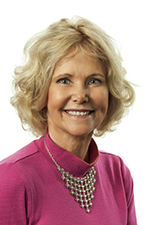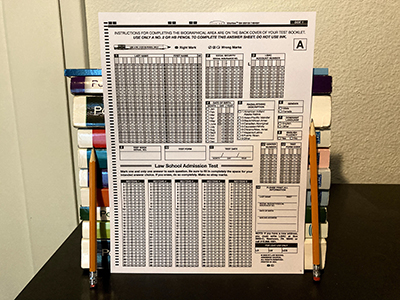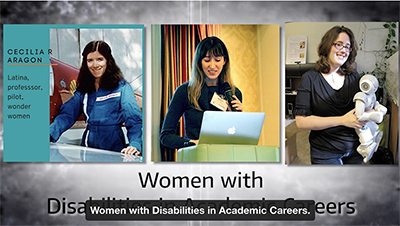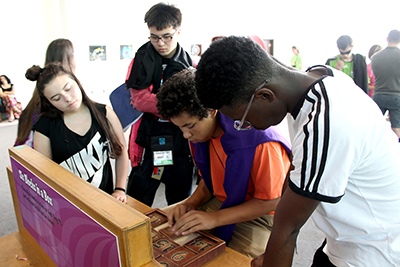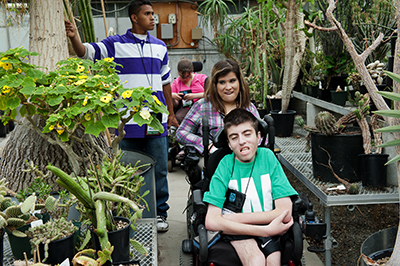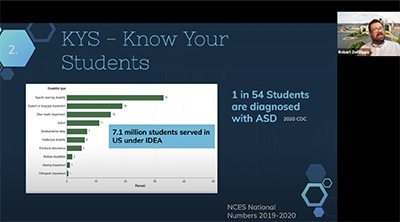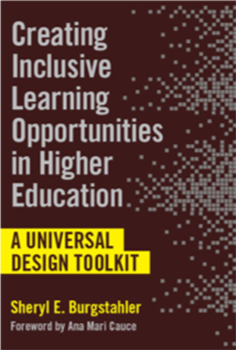Meet the 2021 Scholars!
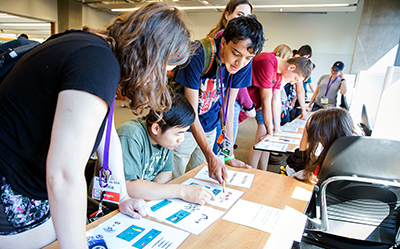
This summer DO-IT will host its twenty-ninth annual Summer Study program for DO‑IT Scholars, which again will be hosted online. So many things have changed in the last year, and though we have all been challenged, we have found many benefits to this growth in our online programs and abilities to connect with those across wider distances. Even though the delivery of our DO-IT Summer Study has been modified to make sure we are as inclusive and safe as possible, the main purpose of our program has not changed: DO-IT provides participants with opportunities to learn about postsecondary education, life on a college campus, challenging academic and career fields, networking, and technology, and we have fun along the way!
Primary funding for the Scholars program is provided by Washington State. To learn more, visit the DO-IT Scholars website.
I am pleased to introduce to you the 2021 Scholars:
Abby attends North Creek High School in Bothell. Her favorite subjects are American Sign Language and science. She hopes to help others by going into the medical field. She has vision and learning disabilities.
Alex attends Pacific Learning Center. His favorite classes are math and science. He hopes to pursue the field of astronautical engineering and to work for NASA. He has autism and anxiety.
Alex goes to school in Washington State and enjoys classes in theater and humanities. They hope to explore these fields in college.
Ashlee attends Bothell High School, where she enjoys her math and astronomy classes. She hopes to major in early childhood education. She has a learning disability and anxiety.
Avery attends Redmond High School and Bellevue College through Running Start. His favorite academic areas are English and art. He’s exploring interests in engineering, life sciences, veterinary medicine and architecture. Avery has ADHD, anxiety, and a social communication disorder.
Bella lives in Washougal and is a junior at the Washington State School for the Blind where she enjoys all of her classes. She hopes to work with either children or animals in her future.
Ben attends Ballard High School. His favorite academic fields are history and archaeology. He hopes to enter a college program that will help him experience other cultures and times in history, both by reading and hearing about them and being able to explore them himself. He has autism and ADHD.
Deliah is a junior at Ellensburg High School. Her favorite classes are those in the areas of art, drama, and theater. She hopes to become a voice actor and produce her own cartoon show.
Jaida attends Pacific Northwest Washington Connection Academy and participated in cross country at Kelso High School. Her favorite subjects are history and English. She would like to pursue her master’s or PhD in education.
Jesper attends Yellow Wood Academy where he enjoys his classes in English and anatomy and physiology. His goal is to become an occupational therapist that specializes in assistive technology. He has cerebral palsy and vision disabilities.
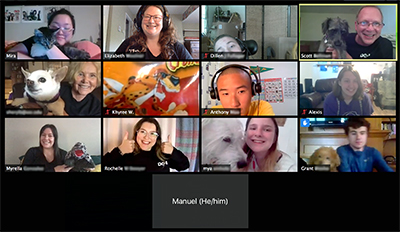
Jocelyn attends Cashmere High School where she enjoys her classes in art and English. She hopes to get a degree in social work to work with a diverse group of people and help children. She has learning disabilities.
Kevin attends Newport High School in Bellevue. His favorite academic areas are computer science and information technology. He hopes to someday attend the University of Washington and go on to work as a professional programmer or engineer. Kevin has Duchenne muscular dystrophy.
Len attends the Washington State School for the Blind. Their favorite classes are math and English. After high school, they plan on attending Western Washington University to get an English degree with a focus in creative writing. Long term plans include becoming a professor. Len has autism and retinitis pigmentosa.
PJ lives in Washington state. Math and science are his favorite academic areas. He hopes to get a degree in architecture or industrial design.
Rohit attends Tesla STEM High School in Redmond. He enjoys computer science and math. He would like to study computer science to work in the technology industry. He has autism spectrum disorder.
Sammy attends Bellevue College through the Career Education Options program and Renton HOME Program. She enjoys studying natural science and history. Sammy hopes to help students who have challenges in school through her career. She has dyspraxia.
Sarafina attends Anacortes High School where she is very interested in anything to do with STEM with a particular interest in geography. She hopes to be a science teacher. She has autism, ADHD, OCD, anxiety, and scoliosis.
Sophia is a junior at Newport High School in Bellevue. Her favorite subjects are computer science and biotechnology. She hopes to build wearable technology and signal-processing tools that improve the user experience for people who wear hearing aids.
Warren attends school in Washington State where he enjoys studying math and art. He plans on going to college to study art or design.
